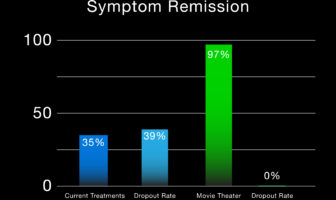
NLP FOR CONFLICT RESOLUTION-HOW TO INFLUENCE OTHERS
Erica and John have been married for over ten years, but the last four years, in their own words, were like hell.
Luise was married with an alcoholic husband from which she finally separated. Now she was a single mom dealing with two adolescent daughters with whom she had a hard time connecting and conflict was a constant.
Michael is a CEO of one of the family’s company and had a difficult time to communicate with his brothers, all members of the family board; the conflict was threatening the unity of the family and the financial future of the business.
They all came at different times to my conflict resolution workshops where I teach participants to learn easy and yet very effective tools to resolve conflict, crack the cooperation code, and master the ability of positive influence. Rapport building, identifying your and others criteria, logical levels and perception alignment are some of the NLP skills and tools I teach.
In fact, conflict does not have to be necessary a source of anxiety and fear. It can be a an opportunity for change and innovation. As I see it, it’s an invitation to open your mind, your heart and your will to elevate your game, to get to the next level in your own life, or that of your family or organization. It is an invitation to open the door to the emerging future.
It is when they found their way to this opening that the participants in my workshop I mentioned above, begun to shift their relations and influence each others in more constructive ways.
The day after the workshop I had reached out to Erica and John, because their relationship had developed a very destructive pattern and I wanted to see if they needed any more support. John responded immediately: “Things have been great between Erica and myself. We have been talking more. Erica spent a long time, including part of the night, opening up to me bout her past that she never told me. So yes, pretty damn good actually, thank you.” And I’m happy to continue supporting them in their process.
But if you are not trained, staying in a conflict can be very painful and take a destructive turn. This is what happens most of the time, when you are not properly trained.
In fact, we don’t get the life we deserve; we get the life we negotiate.
Being able to transcend a conflict means to master the ability to influence others and yourself. To help others to begin acquiring the essential skills of influence, I put together a free and easy guide, highlighting 5 steps you can take right now, to upgrade your capacity to influence others and to gain loyal friends. You can download the entire guide here for free.
Among the steps, the one that characterizes all the great influencers is the capacity to listen.
The great international mediator Alvaro De Soto, who brought peace to El Salvador, several time insisted with me that listening is the fundamental quality of a mediator.
In fact, listening allows us to suspend the assumptions, judgments, and values that are given to us from our own past experiences, and displaces our mind, heart and will to the experience, perception and values of the other. Listening is the door to understanding. It allows the healthy and necessary displacement from the center of our ego to the periphery where change and innovation can be discovered.
But what are some of the practical ways in which you can practice the art of listening for a more effective way of influencing others?
When you want to listen to others, one effective way to do it, is to ask them to talk about themselves (have you ever noticed how we love to talk about ourselves when given the opportunity?). It allow us to enter the map of the world that shapes the experiences and the perceptions of our interlocutors.
One other way you can practice listening, is by holding the silence. Refrain from jumping into the conversation, by making a remark or giving your own opinion about what was just said. When we jump in, we do mostly so in reaction, and we close (or at least we narrow) the space for effective communication. Rather, bite your lips, and check if the others has something more to say. Those moments of silence often are the prelude to more important and honest content.
Then, rather then following up with a comment, ask a question that invites the other to share more.
When I meet someone, I often ask them, “What’s on your mind?”. I listen, I might ask a few clarifying questions, and then I follow up with the same question, “And what else is on your mind?”. I might ask this question two or three times, until I have a sense that what’s really on the other’s mind has surfaced. In fact, most of the time, what is communicated initially does not reflect what’s really going on.
You can download my guide here if you want to explore the 5 steps to positive influence and get more concrete and effective tips on how to master this essential leadership skill. Because acquiring and mastering conflict resolution skills, especially if complemented with NLP principles and techniques, will help you to negotiate a better life for yourself.



 Download Doug O’Brien’s paper,
“Be your Best with Self Hypnosis”
Download Doug O’Brien’s paper,
“Be your Best with Self Hypnosis”